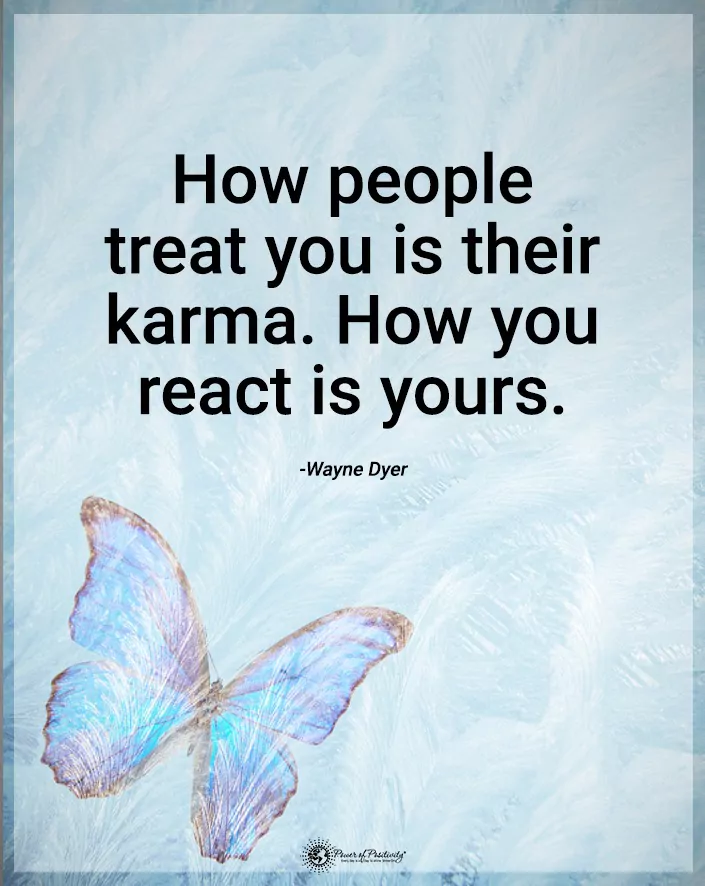Learn why your relationships often feel one-sided.
Sometimes, in human relationships, we feel we’re being unduly taken advantage of by others. While such situations can be emotionally taxing, understanding the root causes of this behavior can offer profound insights. This knowledge helps us navigate relationships with greater wisdom. It also provides a roadmap for personal growth and establishing healthier connections with those around us.
The phenomenon of being taken advantage of often has profound psychological roots. For some, it may stem from past experiences. But, societal conditioning or personal insecurities might play a pivotal role for others. By recognizing and addressing these underlying factors, one can reclaim their sense of agency and ensure their relationships come from a place of mutual respect and genuine care.
This article will explore ten reasons people might take advantage of you. These insights can empower you with awareness. Moreover, they may help guide you toward fostering healthier interactions in both personal and professional realms.
10 Reasons People Always Take Advantage of You
Understanding the root causes of why people might take advantage of you is the first step in ensuring that your relationships are balanced and fulfilling. Learn how to recognize these patterns. You will learn how to work towards addressing them and empower yourself to cultivate connections built on mutual respect, understanding, and genuine affection.

1. Some Take Advantage of Your Deep Desire to Please
Being eager to make others happy is commendable. But it can sometimes come at a personal cost. People with a deep-seated need to please often prioritize others’ wants and needs above their own. That can lead them to compromise their well-being, time, or resources.
The psychology of people-pleasers highlights a few key characteristics. They often fear rejection or criticism and believe that saying ‘no’ might make them less likable. They’re also more easily swayed by negative influences. Over time, some around you might recognize this trait and see opportunities to benefit from such accommodating behavior.
Tips to Stop People-Pleasing:
- Learn to recognize and value your own needs.
- Understand that saying ‘no’ is a right, not a sign of selfishness.
- Seek balance in relationships; it’s about mutual respect and understanding.
2. Low Self-Esteem and Lack of Self-Worth
How we perceive ourselves often dictates how others treat us. Constantly devaluing yourself or your efforts sends a message that others can do the same.
Low self-esteem can manifest in various ways:
- Accepting less than you deserve.
- Not speaking up when mistreated.
- Continuously seeking validation from others.
Signs of low self-esteem in relationships include always deferring to the other person’s opinion or feeling grateful for attention, even if it’s negative. One might also fear abandonment to the point of tolerating mistreatment.
Tips to Increase Self-Esteem:
- Practice self-affirmations and challenge negative self-beliefs.
- Surround yourself with positive influences and positive thinkers who uplift you.
- Seek professional guidance, if needed, to build a stronger self-image.
3. Some Take Advantage of Your Fear of Confrontation
Avoiding conflict is an instinct for many. However, constant evasion can signal to others that they can override your feelings or opinions without consequence.
This fear might stem from past experiences where confrontation led to adverse outcomes or from an innate desire to maintain peace at any cost.
Overcoming fear of confrontation involves understanding that healthy conflict can lead to growth and more transparent communication. It’s about expressing yourself honestly, not necessarily aggressively.
Tips to Address Conflict While Staying Positive:
- Start with minor confrontations and gradually build your confidence.
- Frame confrontations as discussions or expressions of feelings.
- Remember, it’s about being heard and understood, not necessarily about winning an argument.
4. You Have a Lack of Clear Boundaries
Establishing and upholding boundaries is essential in any relationship. If you don’t set clear boundaries, it indicates to others that they can act without respect for your feelings or limits.
Setting healthy boundaries in relationships means understanding and communicating your limits, emotional space, and the treatment you expect from others. Without clear boundaries, it’s easier for others to push you beyond your comfort zone or neglect your needs.
Tips to Set Healthier Boundaries:
- Regularly evaluate and define your limits.
- Communicate boundaries clearly and assertively.
- Be consistent in upholding them, even if it means facing uncomfortable situations.
5. You Have An Over-Reliance on External Validation
Seeking validation is a natural human behavior. However, an over-reliance on external approval leaves you susceptible to being taken advantage of. If you constantly seek affirmation from others, you may inadvertently give them power over your self-worth.
Finding self-validation in a relationship means recognizing and celebrating your worth internally. By deriving self-worth from within, you become less dependent on others to feel valued.
Tips to Rely Less on the Validation of Others:
- Engage in self-reflection and recognize your accomplishments.
- Understand that others’ perceptions don’t solely determine your value.
- Engage in activities that increase your self-confidence and self-awareness.
6. They Take Advantage of Your Unawareness of Manipulative Techniques
Manipulation can be subtle, and not recognizing these tactics can lead to relationship mistreatment. Whether guilt-tripping, gaslighting, peer pressure, or feigned vulnerability, these techniques take advantage of you.
Recognizing manipulation in relationships is about understanding the signs and the dynamics at play. So, learn more about these tactics. As a result of that knowledge, you’ll equip yourself to confront and counteract them.
Tips to Help Identify Manipulators:
- Educate yourself about common manipulative behaviors.
- Trust your instincts; if something feels off, it probably is.
- Seek advice or counseling if you believe you’re in a manipulative relationship.
7. Societal Conditioning
From an early age, many of us learn societal expectations and norms. For some, this might involve always being accommodating, not voicing dissent. Thus, these beliefs may encourage subservience.
Societal pressures in romantic relationships can often guide our behavior, sometimes pushing us into molds that don’t truly fit our character or needs. This belief system makes some individuals more susceptible to being taken advantage of due to pre-established expectations.
Tips to Increase Thinking Outside the Box:
- Engage in self-awareness exercises to differentiate between your genuine feelings and societal conditioning.
- Establish your identity outside of societal norms and expectations.
- Seek supportive communities or groups that challenge traditional norms and encourage individuality.
8. Some Will Take Advantage of Your True Kindness
Being generous and kind and helping others is commendable. However, there’s a thin line between selfless giving and being taken advantage of, especially if one confuses self-sacrifice with genuine altruism.
Kindness vs. self-sacrifice in relationships means understanding that true altruism is about genuine care without harming oneself. On the other hand, self-sacrifice might involve neglecting one’s own needs.
Tips to Be Kind Without Burning Out:
- Recognize the importance of self-care alongside caring for others.
- Differentiate between genuine requests for help and those that exploit your goodwill.
- Set limits to ensure that your generosity doesn’t lead to personal detriment.
9. Not Recognizing One’s Value
Every individual possesses unique qualities and strengths. If you don’t recognize or celebrate these strengths, it becomes easier for others to overlook or undervalue them.
Discovering self-worth in relationships is crucial to ensure that others treat you with the respect and consideration you deserve. If you undervalue yourself sets a precedent for others to do the same.
Tips to Know Your Worth and Assert It:
- Spend time understanding your strengths, passions, and values.
- Celebrate your achievements, no matter how small.
- Surround yourself with individuals who recognize and uplift your worth.
10. The Influence of Past Relationships and Patterns
Our past experiences, especially in relationships, can profoundly influence our behavior. If someone has been in relationships where they were continuously taken advantage of, they may unknowingly adopt a pattern of allowing such behavior. They don’t know better because they believe it’s the norm.
The impact of past relationships on today’s behavior highlights our history’s subconscious influence on our present. As a result, one might inadvertently attract similar dynamics due to familiarity. In fact, some don’t realize they are detrimental.
Tips to Release Past Relationships:
- Reflect on past relationships to identify any recurring patterns of behavior.
- Seek therapeutic guidance, if needed, to address and break negative cycles.
- Proactively establish new, healthier patterns in current and future relationships.
Final Thoughts on Understanding Why People Always Seem to Take Advantage of You
Understanding why people might take advantage of you is instrumental in self-awareness and relationship building. Each of these ten points provides insights into potential vulnerabilities. They also pave the way for personal empowerment and growth. While the reasons vary from societal pressures to personal insecurities, the common thread lies in acknowledging and proactively addressing these factors.
Recognizing these patterns is just the first step. True transformation arises when you actively work towards breaking these cycles. Therefore, you must actively work toward valuing yourself, setting clear boundaries, and seeking relationships built on mutual respect and understanding.
Doing so protects yourself from the potential harm of others who take advantage of you. You also foster an environment where genuine, healthy relationships can flourish. Remember, in the journey of self-improvement and relationship-building, you are never alone. Seek support when needed, trust your growth, and prioritize your well-being.



















